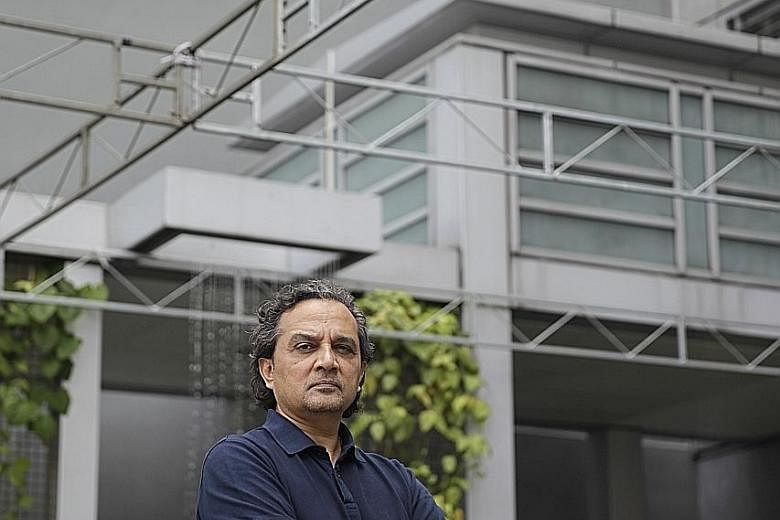Q First, tell us more about MatchMove Pay and what it is about.
A We spun MatchMove Pay off from our B2B entertainment platform business, MatchMove Play, about three years ago, when we found that nobody was addressing mobile payments. Nobody was paying attention to this whole concept of making money digital, making it move around with an app.
So our focus is on building technology enabling anyone with a mobile phone to spend, send and lend money, anywhere in the world.
We've grown to have offices in Vietnam, Indonesia, Thailand, India and the Philippines, besides our headquarters here, and we are going to continue to grow our global footprint. We're very much on track to open offices in southern and eastern Africa, Dubai, Scandinavia and we've already set up an office in Miami.
Today, we have about five million users and expect to have 45 to 50 million users by the end of 2017.
Q What are some HR practices at the company you're proudest of ?
A From day one, we decided that we want to be a global company.
So when it comes to communicating with our staff, we always make the assumption that everyone is the same, regardless of differences in gender, race, religion and so on.
We celebrate diversity. The people we look for and hire are those who are driven to create change.
That's what makes us more of a Silicon Valley-type company.
When it comes to drawing talent, the job is not done after a person joins the company post-interview.
You have to continue to find ways to motivate and excite them.
So when employees have been with us for around two years and have shown that they can contribute, we prefer to pull back on supervision and let them figure out what they want to do next to improve the organisation, regardless of their role.
We also believe in giving a lot of recognition so we never do cyclical salary increases - it's strictly performance-based.
We conduct employee performance reviews every quarter. Some people have even had three to four salary increases in one year.
And we also value and encourage feedback and ideas from our staff.
There are bimonthly "All Hands" sessions, where the entire company comes together in a conference call where I give a business update, and we invite anonymous questions and address them.
Q So what were some of the toughest questions that had been asked?
A One was: "Why aren't we being sold to Google yet?" Well, why do we want to sell to Google when we can be the Google of money?
And another was: "Why don't you pay more?" We are still a start-up so we tell them we can't give more, but we can offer stock options. A lot of people working at MatchMove Pay now have some very healthy stock options, which will mean a lot more than salary in the long term.
We've seen and heard about many start-ups that tend to hold equity and ownership of the company only at the top. But we give everyone stock options.
About 25 per cent of the company is being held by staff right now.
Q How have employees benefited from the HR practices in place?
A We had an engineer from one of the world's top engineering schools, Nanyang Technological University, walk in to apply to be a web designer. This guy could have got a job anywhere else but he chose to apply for this particular job, which is based on a skill set that is very different from his background in chemical engineering.
He said: "Having done all that engineering, I still want to use it but I want to do it in the digital design space. And nobody will give me a job so I know I have to start from the bottom as web designer."
Then he showed me his web design skills which were all self-taught. We gave him the job, paying him a lot less than he could have earned.
This person is 29 today and has gone up the ranks to become vice- president of product in just three or four years. His salary has gone up by four times, he is sitting on a mountain of stock options and he is a classic role model for others in the company.
If you're willing to push yourself, the company will listen. If you're willing to drive the company, we'll give you the chance to do that.
What I want is (a situation where) people can walk around, look at their colleagues and say: "That's an example. It does happen." We want living, breathing examples of success here; otherwise, it's just meaningless talk.
Q Why is it so important for smaller companies and start-ups to have progressive HR policies?
A All start-ups need HR practices that can attract and retain talent.
Fintech start-ups like us need to show we're different to compete for the same talent as the banks. It's about attracting people who are hungry, who want to make a difference and know there is a path for it.
We've got the vision in terms of disrupting and displacing current methods of managing money, and improving people's quality of life by making it more digital, just like everything else. But without the talent, this will not come to anything.


